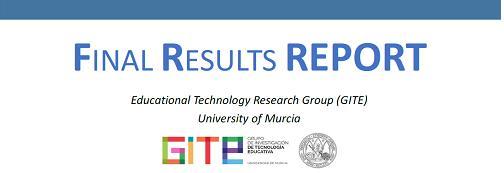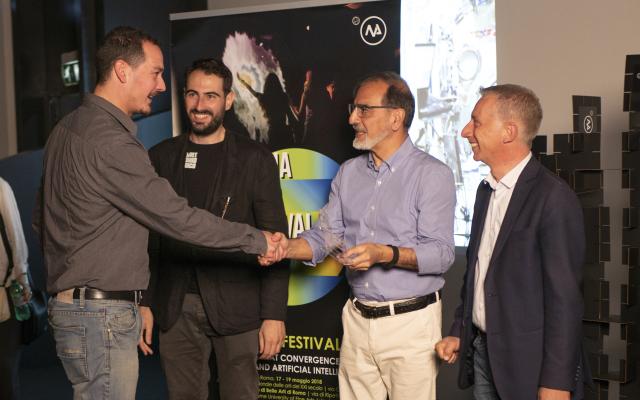Can we distinguish between a conflict and an episode of bullying? If we witness an act of abuse, do we know how to intervene.
 The adults, as well as the young men and women, who participated in Project DisAbuse: Disablist Bullying - Experience into Change, Providing the Right Support Services now have clear ideas and new tools to employ. The results were presented last Friday at the Phyrtual Innovation Gym in Rome at the international conference organised by Fondazione Mondo Digitale, a project partner.
The adults, as well as the young men and women, who participated in Project DisAbuse: Disablist Bullying - Experience into Change, Providing the Right Support Services now have clear ideas and new tools to employ. The results were presented last Friday at the Phyrtual Innovation Gym in Rome at the international conference organised by Fondazione Mondo Digitale, a project partner.
Here is a summary of the results with aggregate data for the four partner countries: Ireland, Italy, Spain and Portugal.
Questionnaires were developed to evaluate the project for the various different target groups:
- GROUP A – experts, coaches and teachers
- GROUP B – adults and students with special needs and/or disabilities
The initial questionnaire evaluated the participants’ level of knowledge concerning bullying and disability, while the final questionnaire examined the increased awareness accumulated following the programme. The evaluation processes addressed five aspects:
- Attitude and personal opinions
- Direct experience
- Prevention and resolution competences
- Understanding of the phenomenon
- Level of direct interaction/resources/organisation.
![]() GROUP A | PROFESSIONALS
GROUP A | PROFESSIONALS
The evaluation interested 74 professionals, mainly teachers, psychologists and social educators (61 women and 13 men).
Professionals claim to know what bullying is: 54% affirms they know how to manage it, but only il 48.7% believe they are capable of identifying cyberbullying. Only 29.7% of professionals feel they have adequate resources to identify harassment. More than 50% is aware of regulations on bullying, but only 43.3% believe schools have the resources to act on cases of disablist bullying. Similarly, 39.2% admits they are on the lookout for educational programmes that allow to prevent, identify and solve this phenomenon.
At the end of the testing phase, 61 questionnaires were collected. After the course, 80% claimed to understand how to identify cyberbullying and disablist bullying. 70.3% declared they are working in their classes on the concept of inclusion, while 67.2% is self-awareness and awareness-raising activities. Percentages increase in relation to the trust levels that students have in teachers. By the end of the course, 96.7% knew how to distinguish bullying and conflict and 55.7% was in search of didactic material and resources to prevent, identify and resolve cases of bulling.
![]() GROUP B | STUDENTS AND ADULTS WITH SPECIAL NEEDS AND DISABILITIES
GROUP B | STUDENTS AND ADULTS WITH SPECIAL NEEDS AND DISABILITIES
During the pre-test phase, 96 questionnaires were submitted to 52 young women and 44 young men. 42.7% of the interviewees considered bullying a “normal” phenomenon: more than half (59,4%) tried to avoid it, 77.1% was aware that individuals with special needs are at greater risk of bullying and 88,5% understood the dangers posed by the web. Nearly 70% of participants revealed they knew people who had suffered bullying and more than 90% declared they informed teachers about abuse and violence against their classmates, although 75% admitted to not being able to refuse requests to do things they didn’t want to do.
62.5% claimed to know the difference between bullying and conflict, but only 36.1% associated reprimands from parents as mistreatment. More than 85% recognised that disablist bullying are acts of discrimination and only 62.5% of participants admitted they’d know what to do if they were to become a victim of bullying. More than 60% feel episodes of violence are insufficiently reported at school and at work.
At the end of the course, 78 questionnaires were collected (30 women and 48 men). After having completed the course, only 20.5% considered bullying a “normal” phenomenon. Moreover, the level of understanding of the difference between bullying and conflict also improved: only 26.9% felt that reprimands by parents or employers were mistreatment. And, finally, the most important figure: 85.9% declared that after participating in the course they understood what to do in case of bullying.
 The project is implemented as part of the Erasmus+ Programme by the Anti-bullying Centre at the University of Dublin (Ireland), Fondazione Mondo Digitale (Italy), Institute of Art & Design Technology (Ireland), University of Lisbon (Portugal) and University of Murcia (Spain).
The project is implemented as part of the Erasmus+ Programme by the Anti-bullying Centre at the University of Dublin (Ireland), Fondazione Mondo Digitale (Italy), Institute of Art & Design Technology (Ireland), University of Lisbon (Portugal) and University of Murcia (Spain).

For further information:


